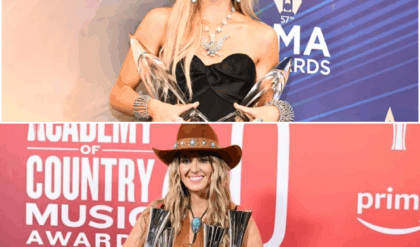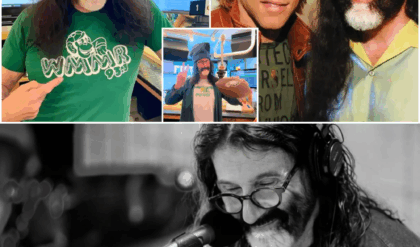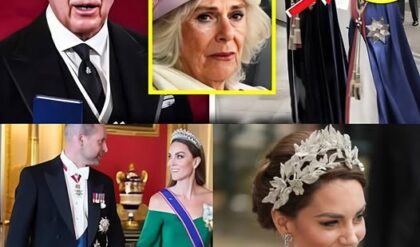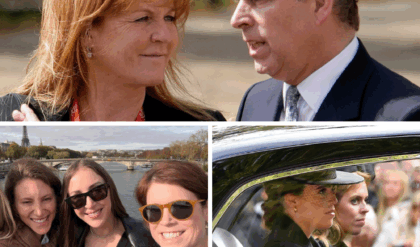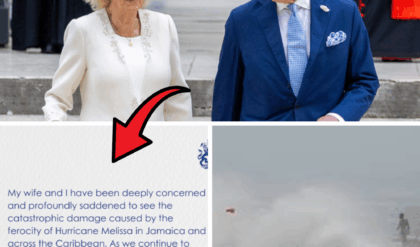The popular singing competition The Voice is facing fresh scrutiny following a scathing Instagram post by a former contestant who accused the show of “ridiculous actions” that undermined their experience. As of July 29, 2025, the controversy has ignited debates among fans, sparked discussions about the show’s editing practices, and raised questions about the treatment of its artists. The outburst, posted late last week, has amplified existing tensions surrounding the NBC program’s production choices, with the contestant’s allegations resonating widely on social media.
The Spark of the Controversy
The firestorm began when Page Mackenzie, a contestant from Season 27, took to Instagram to vent her frustration after her Knockout performance was edited out of the April 7, 2025, episode. Mackenzie, who had been part of Team Kelsea, expressed her disappointment in a detailed post, writing, “My [Knockout] on The Voice ‘aired’ tonight and I was montaged … again. This is the 2nd time this has happened & it’s hard not to feel invisible.” Her earlier Battle Round performance with Robert Hunter had also been condensed into a montage, a decision she had previously criticized as dismissive of the “heart and hard work” invested in her performance.
Mackenzie didn’t stop at her personal grievances. She broadened her critique, noting that she was “not alone” and that some of “the most gifted artists” from Season 27 were similarly sidelined. “We all came here [with] something real to give & it deserved more care, more space, more respect,” she continued. “It’s clear the show is centered around other things. But for us it was always about music, connection & the courage it takes to show up. I’m not angry — but I am disappointed. These artists deserved to be seen & heard.” Her call to “follow” and “support” these overlooked talents has since galvanized a movement among fans to seek justice for the edited-out performers.
A Pattern of Editing Complaints
Mackenzie’s accusations echo a recurring theme among The Voice contestants who feel their efforts have been diminished by the show’s editing. Tori Templet and Carlos Santiago, also from Season 27, echoed her sentiments in the comments section of her post. Templet wrote, “So very proud of you Page. MONTAGES DONT DEFINE US,” while Santiago added, “#Releasethemontages. You’re incredible my friend.” This collective outrage suggests a systemic issue, with contestants believing the show prioritizes drama and coach narratives over showcasing raw talent.
The practice of montaging performances—reducing them to brief clips or skipping them entirely—has long been a point of contention. In past seasons, contestants like Ryan Gallagher (Season 19) and Tom Nitti (Season 24) faced abrupt exits with limited explanation, fueling speculation about behind-the-scenes decisions. Gallagher, for instance, was removed for an alleged COVID-19 protocol breach, which he and his manager denied, while Nitti left citing family priorities during a divorce. Mackenzie’s public call-out, however, marks a bolder step, directly challenging the show’s editorial control and its impact on artists’ visibility.
Fan Reactions and Social Media Buzz
The Instagram post has ignited a firestorm on platforms like X and TikTok, where fans have expressed a mix of support, skepticism, and frustration. One X user posted, “Page Mackenzie speaking out about The Voice montages is brave—those edits can bury real talent.” Another commented, “If the show’s hiding performances, what else are they hiding? Time to rethink how we watch this.” Some fans have rallied behind Mackenzie’s call to action, boosting the profiles of montaged artists, while others question whether her critique oversimplifies the complexities of television production.
The controversy has also revived discussions about The Voice’s format, particularly its reliance on coach-driven narratives. With Season 28 set to premiere on September 22, 2025, featuring coaches Michael Bublé, Reba McEntire, Niall Horan, and Snoop Dogg, fans are demanding transparency. “If Page and others are right, this season better show the talent, not just the chairs turning,” one TikTok user wrote. The timing of Mackenzie’s post, just months before the new season, has amplified its impact, putting pressure on NBC to address the allegations.
The Show’s Perspective and Lack of Response
As of midday on July 29, 2025, NBC has not issued an official statement regarding Mackenzie’s claims. This silence has fueled speculation, with some suggesting the network is avoiding confrontation ahead of the upcoming season. Historically, The Voice has defended its editing choices as necessary to fit a fast-paced competition into a limited broadcast window. A spokesperson for the show told NJ.com in April that montages are a standard practice to “highlight key moments” while managing time constraints, a response that did little to quell contestant discontent.
Critics argue that this approach prioritizes entertainment value over artistic integrity, a charge Mackenzie’s post seems to support. Her assertion that the show is “centered around other things” hints at a focus on coach dynamics or dramatic storylines—elements that have driven viewership but occasionally overshadowed contestant performances. The lack of a rebuttal from NBC has only intensified calls for the release of full, unedited footage, a demand Mackenzie herself endorsed with her hashtag #Releasethemontages.
Broader Implications for The Voice
This incident is not an isolated event but part of a broader narrative of discontent surrounding The Voice. Past controversies, such as Kelly Clarkson’s clash with contestant Molly Stevens in 2018 over a perceived “small-minded” comment, and the 2020 exit of Ryan Gallagher amid COVID-19 protocol disputes, have highlighted tensions between contestants and production. Stevens accused Clarkson of pigeonholing her by comparing her voice to the Indigo Girls and Melissa Etheridge, while Gallagher’s manager called the show’s actions “damaging,” suggesting a pattern of opaque decision-making.
The current backlash also coincides with shifts in the show’s structure. With Season 26 winner Sofronio Vasquez marking Michael Bublé’s debut victory, and multiple contestant withdrawals (Tanner Frick and Mor Ilderton in Season 26), the program is under scrutiny for how it handles its talent pool. Mackenzie’s post taps into this unease, positioning her as a voice for those who feel the competition’s promise of exposure is undermined by its production choices.
The Contestant’s Perspective
Mackenzie’s journey on The Voice began with promise. Her Blind Audition earned her a spot on Team Kelsea, and her Battle Round performance showed potential, despite being montaged. Her elimination in the Knockouts, where she lost to Alanna Lynise, was a quiet affair on screen, with the focus shifting to the winner’s reaction rather than her effort. This lack of airtime, she argues, erased the “courage” she brought to the stage, a sentiment shared by fans who saw her as a contender.
In her post, Mackenzie’s tone balances disappointment with defiance. She encourages support for fellow artists like Templet and Santiago, framing her critique as a collective stand rather than a personal vendetta. This approach has resonated, with her follower count rising by over 10,000 in the days following the post, reflecting a growing audience eager to back her cause.
A Call for Change
The controversy has sparked a broader conversation about reality TV ethics. Fans and industry observers are questioning whether The Voice’s format—rooted in blind auditions and coach mentorship—still serves its original purpose of discovering talent. Some suggest that the show’s shift to a fall-only schedule (announced in 2021) and its reliance on established coaches like Bublé and McEntire may prioritize star power over new voices, a theory Mackenzie’s experience seems to support.
Proposals for change include releasing extended cuts of performances on Peacock, the show’s streaming platform, or implementing a review process for montage decisions. Others advocate for contestant input in editing, a radical shift that could empower artists like Mackenzie. “If they won’t show the talent, they shouldn’t call it The Voice,” one X user quipped, encapsulating the growing sentiment.
Looking Ahead
As The Voice prepares for Season 28, the fallout from Mackenzie’s post looms large. With a coaching panel of proven winners—Bublé (Season 27 champ), McEntire (Season 25), Horan (Seasons 23 and 24), and Snoop Dogg (Season 26)—the show aims to maintain its competitive edge. Yet, the controversy could influence viewer perception, especially if NBC fails to address the editing issue head-on.
For Mackenzie and her supporters, the fight continues. Her post has not only highlighted a personal grievance but also ignited a movement to redefine how talent is showcased. Whether this leads to tangible changes or fades as a fleeting scandal, it has undeniably cast a shadow over The Voice’s polished image, leaving fans to wonder what lies behind the red chairs.
As the premiere date of September 22, 2025, approaches, all eyes are on NBC to see how it will respond. For now, Page Mackenzie’s blistering IG post stands as a bold challenge to a show that promises to amplify voices—yet, in her view, too often silences them.
